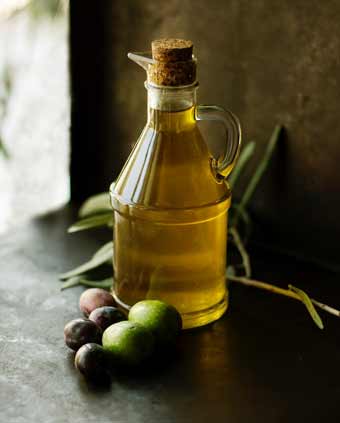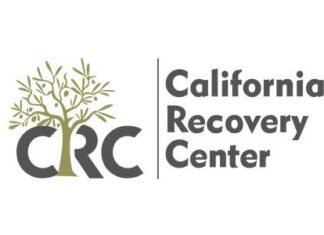Dietary guidance for optimal cardiovascular health
Sacramento, Calif.- One of the most challenging aspects of nutritional science is that research is continuously being conducted and published. This means that health guidelines we currently follow could be debunked by new research at any given moment.
There is no greater example of this than the controversy of dietary fat intake and its influence on health and disease prevention.
The non-fat craze began in the 1960’s when Ancel Keys published the Seven Countries study. According to his research, he determined the reason for high cholesterol levels in middle-aged men was due to high total fat intake. He claimed that in order to reduce the risk of cardiovascular diseases, individuals should reduce all fat intake (1). This publication, though proven to be flawed decades later, shaped the rest of the 20th century and how Americans view fat intake.
Misleading labels
Since then, products labeled, “Non-Fat,” and, “Reduced Fat” are abundant in grocery stores today. Though these labels may sound well-meaning, they are very misleading. What these labels don’t say is that fat has often been replaced with added sugars and chemicals to make up for flavor and texture lost when fat is removed. These can wreak even more havoc on health.

Now as more research has emerged, the dietary guidance for optimal cardiovascular health has shifted. One of the most extensively researched dietary patterns to date, the Mediterranean diet, has been shown to help prevent heart disease and stroke (2). It contrasts with the previously believed notion that, ‘fat is bad,’ because it consists of a variety of fat-rich foods and has been proven to benefit heart health.
Mediterranean diet
The Mediterranean diet includes extra virgin olive oil (EVOO), vegetables, fruits, legumes, whole grains, nuts, seeds, as well as moderate consumption of fish, poultry, dairy and alcohol. In addition, it is very low in red and processed meats, sugar, and refined grains (3). Nonetheless, the Mediterranean diet is known for its associations with high life expectancy and low rates of non-communicable diseases like CVD, cancer, and Type II diabetes (3). In fact, high fat foods like extra virgin olive oil, fish, and walnuts support increased HDL levels and improved HDL function (2).
When it comes to understanding how fats can be beneficial (or not beneficial) for health, it is important to understand the key differences between saturated fats and unsaturated fats. Saturated fatty acids have a chemical structure where carbon atoms are joined with only single bonds; they are saturated with hydrogen bonds. Saturated fats are solid at room temperature.
Foods that contain primarily saturated fat include:
- Animal meat including beef, poultry, pork
- Dairy products including milk, yogurt, cheese, and butter
- Coconut products including coconut oil and coconut milk
- Ultra-processed packaged foods including crackers, breads, and pastries
- Ultra-processed animal meats like hot dogs, sausages, bacon
To contrast, unsaturated fatty acids have a chemical structure where the carbon atoms are joined with at least one double or triple bond. Oils that contain unsaturated fats are liquid at room temperature, and also exist in solid foods.
Foods that contain primarily unsaturated fats include:
- Fatty fish including salmon, mackerel, herring, sardines, anchovies, tuna
- Avocados and avocado oil
- Olives and olive oil
- Nuts including almonds, cashews, walnuts, pistachios
- Seeds including chia, flax, hemp
- Vegetable oil/canola oil
Recommendation
Increasing unsaturated fat intake and reducing saturated fat intake is one recommendation that can help improve cholesterol levels. One study found that replacing 5% of total calories from saturated fat intake with unsaturated fat intake was associated with a reduced risk of Coronary Heart Disease by 25% (3). Another study concluded the risk of CHD was reduced by 17% when switching 5% of total calories from saturated fats to unsaturated fats (3).
Now, major global health organizations including the World Health Organization and American Heart Association have agreed that increasing unsaturated fat intake while reducing saturated fat intake is the cornerstone of cardiovascular disease risk reduction and prevention.

Saturated Fats
However, this does not mean that saturated fats need to be avoided entirely. When it comes to choosing saturated fats, quality is key. A general rule of thumb to remember when deciding what saturated fats to choose is to opt for the least modified version possible of a food. For example, when choosing dairy products, instead of choosing reduced-fat or fat-free options, which have been altered from their original fat-rich form, consider organic full-fat yogurt and whole milk. The fat in these foods helps provide a feeling of fullness after meals when combined with fiber and protein, and it also helps increase the absorption of fat-soluble vitamins. Coconut oil and coconut milk are other saturated fats that can be utilized in cooking and baking, as there is very little processing and modification necessary to obtain coconut oil and milk from coconut.
Organic
Additionally, opt for organic and/or grass-fed meat and dairy, as well as pasture-raised, organic eggs whenever possible. Organic versions of these products are free of fertilizers, pesticides, and added growth hormones, which can negatively impact both immune and endocrine function.
The quality of unsaturated fats also matters. Omega-3 fatty acids exist among polyunsaturated fats like fatty fish, chia seeds, flax seeds, and walnuts. These foods are even more beneficial for health and disease prevention because they help prevent and fight inflammation (4). To contrast, unsaturated fats like vegetable and canola oils contain Omega-6 fatty acids, which, when consumed in high quantities, can contribute to inflammation. When choosing unsaturated oils to cook and bake with, opt for avocado and olive oils that contain beneficial unsaturated fats. But remember, a little oil goes a long way! Typically, only 1-2 tablespoons of oil are needed for cooking.
Summary
In summary, the quality of fats matters just as much, if not more than, the quantity of dietary fats consumed. Fat should most certainly not be feared; it should be embraced for its benefits in supporting a healthy cardiovascular system. Rather than reducing total fat consumption, focus on incorporating high-quality fats like fish, avocados, nuts, seeds, and olive oil for the most cardioprotective benefits.
References
- Keys, A, Grande F. Role of dietary fat in human nutrition. III. Diet and the epidemiology of coronary heart disease. Am J Public Health Nations Health. 1957;47(12):1520-1530. doi:10.2105/ajph.47.12.1520
- Stadler JT, Marsche G. Dietary Strategies to Improve Cardiovascular Health: Focus on Increasing High-Density Lipoprotein Functionality. Front Nutr. 2021;8:761170. Published 2021 Nov 22. doi:10.3389/fnut.2021.761170
- Nettleton JA, Brouwer IA, Mensink RP, Diekman C, Hornstra G. Fats in Foods: Current Evidence for Dietary Advice. Ann Nutr Metab. 2018;72(3):248-254. doi:10.1159/000488006
- Liu AG, Ford NA, Hu FB, Zelman KM, Mozaffarian D, Kris-Etherton PM. A healthy approach to dietary fats: understanding the science and taking action to reduce consumer confusion. Nutr J. 2017;16(1):53. Published 2017 Aug 30. doi:10.1186/s12937-017-0271-4
About the Author:
Hanna Spevak, MScN is an integrative nutritionist at Sacramento Naturopathic Medical Center. She earned her Master of Science in Nutrition from the National University of Natural Medicine in Portland, OR. She is also a Food As Medicine Everyday Educator and believes in the healing power of food. Outside of the office, Hanna enjoys creating new recipes, traveling, going for walks and lifting weights, and spending time with friends and family.
Explore additional topics at Natural Wellness.
related
- Healthy Weight Loss in the New Year
- Reflections on Dr. Godby’s 76-day nutritional plan and fitness journey
- For Vibrant Health, Eat the Rainbow
(21+ years strong)
Welcome to the brighter side!
Get in front of local customers! 24/7 (365)























